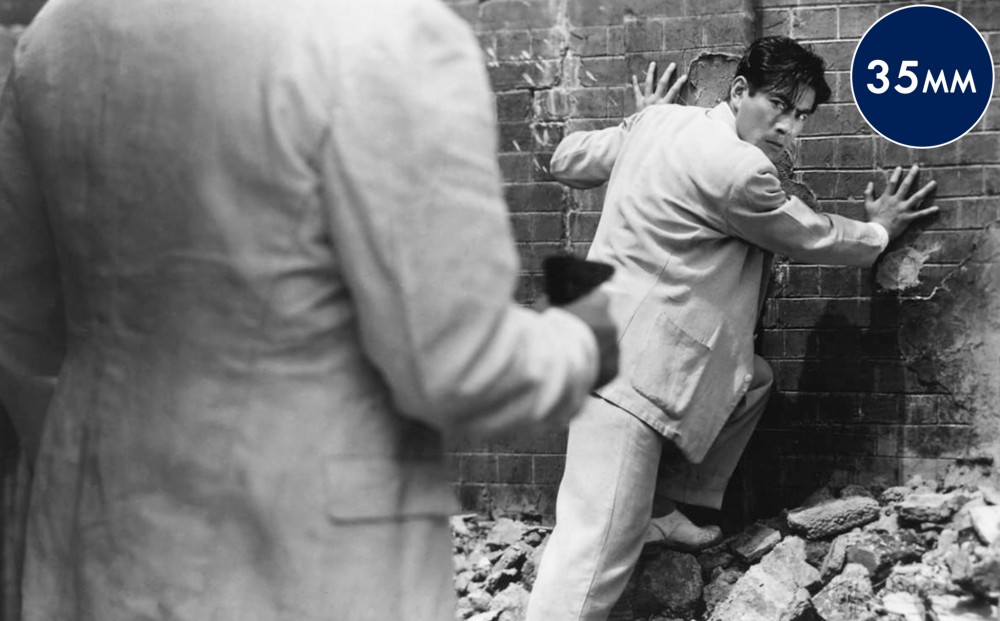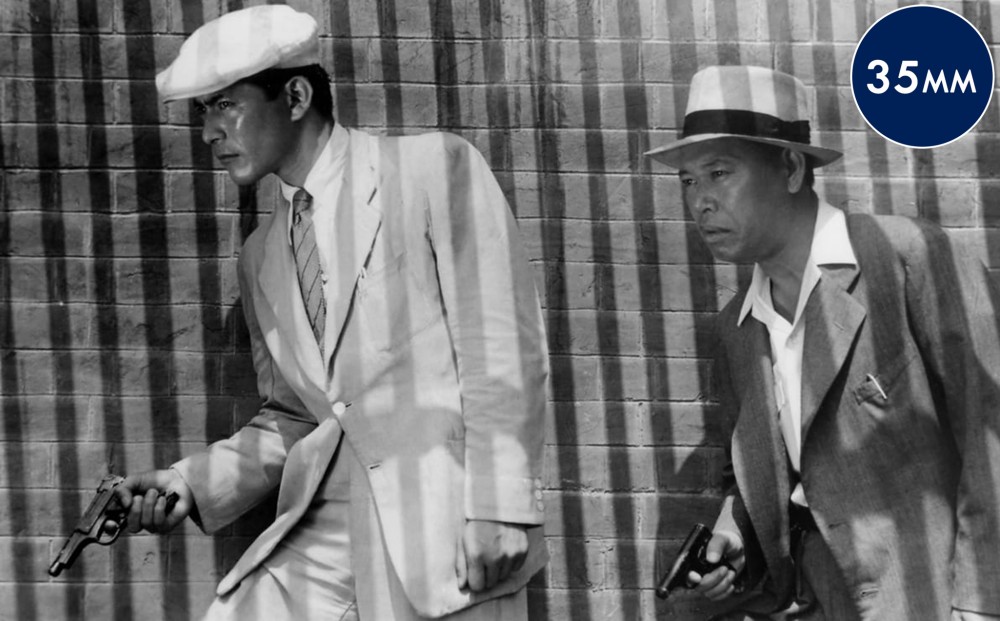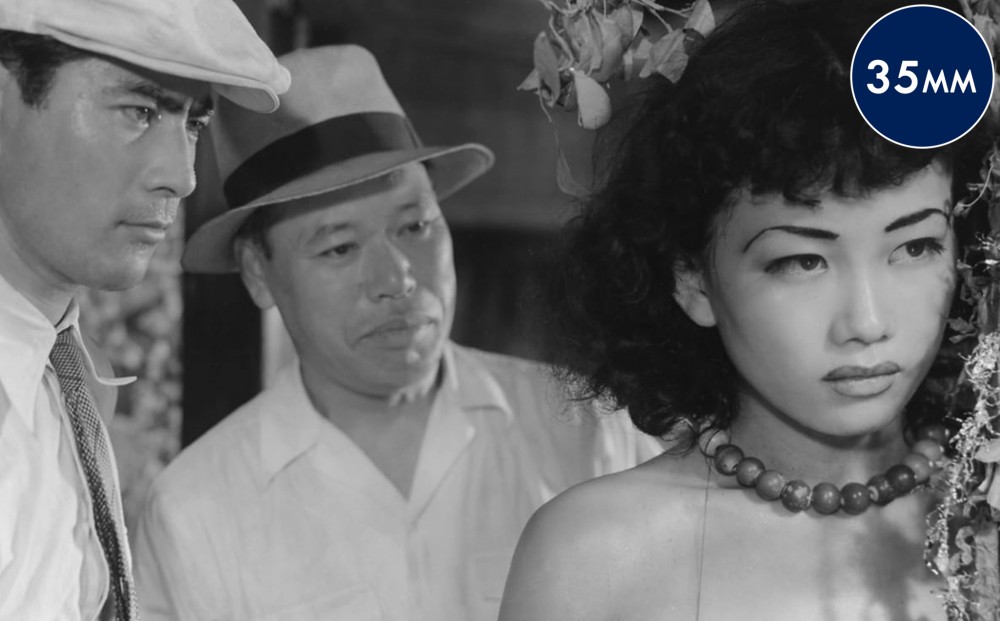STRAY DOG
1:20 7:10
Saturday, October 19
野良犬 (Nora inu)
Director Akira Kurosawa
Cast Toshirô Mifune, Takashi Shimura, Keiko Awaji
Screenplay Akira Kurosawa, Ryûzô Kikushima | Cinematography Asakazu Nakai
1949 | Japan | 35mm | approx. 98 min. | In Japanese with English subtitles
Kurosawa Noir: While a rubble-strewn Tokyo swelters through a torrid heat wave, awkward young white-suited detective Mifune finds to his shame that his pistol has been stolen – and then that it’s been used in a murder. Thus begins his obsessive, guilt-ridden search, highlighted by nearly ten-minute dialogue-less sequence shot by hidden camera in the toughest black market section of the city. (The post-production dubbing, with twelve of the latest pop songs layered in, was so difficult that Kurosawa’s soundman was reduced to tears.) No bleeding hearts here: when seasoned mentor Takashi Shimura points out that the killer, a returned vet, went bad when all his possessions were stolen, Mifune heatedly replies that the same thing happened to him – and then he became a cop. No surprise then that, as the chase progresses toward a final confrontation – electrifyingly backgrounded by a young girl’s stop-start practicing of a Mozart piece – Mifune and the unseen killer begin to seem more and more alike. A confessed admirer of Georges Simenon, Kurosawa adapted his own unpublished novel for this, his first detective film and the real beginning of the genre in Japan.
Reviews
“One of the greatest detective films ever made!”
– The New York Times
“Perhaps the best detective picture ever made in Japan!”
– Donald Richie
“Mifune is magnetic as a Tokyo cop obsessed with recovering his gun, but the real star is the city itself, in all its heat and squalor. The movie is an impassioned outcry against social dissolution – Kurosawa sees both Mifune and the thief who goes on a crime spree with the cop’s pilfered Colt as a product of a brutal postwar environment.”
– Michael Sragow, The New Yorker
“Above all a film of atmosphere… By piling on naturalistic details to keep the heat constantly in our minds – fluttering fans, the mopping of brows, a cop hitting the back of a witnesses’ electric fan to make it oscillate between them – Kurosawa evokes a world in perpetual motion.”
– Chris Fujiwara
“A detective story that’s also meant to function as a commentary on the desperate social conditions of postwar Japan. The excitement it provides is deeper and more satisfying than simple suspense.”
– Terrence Rafferty



